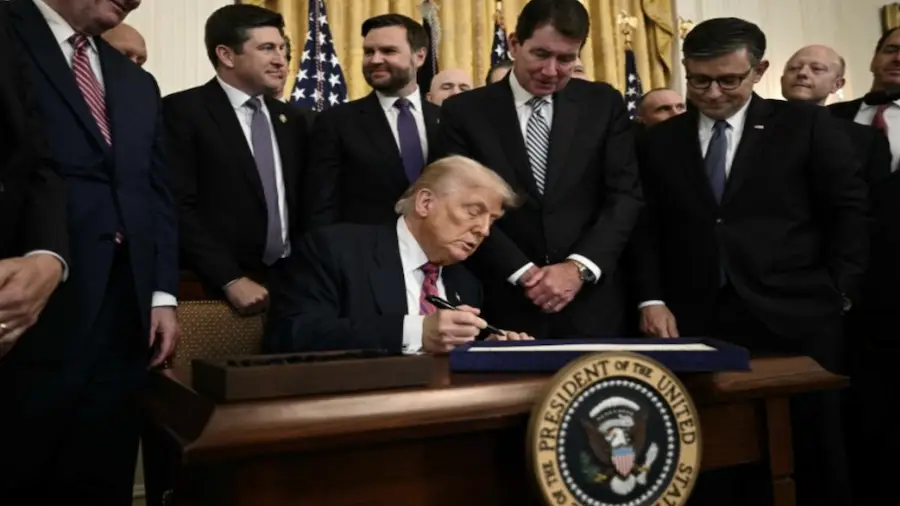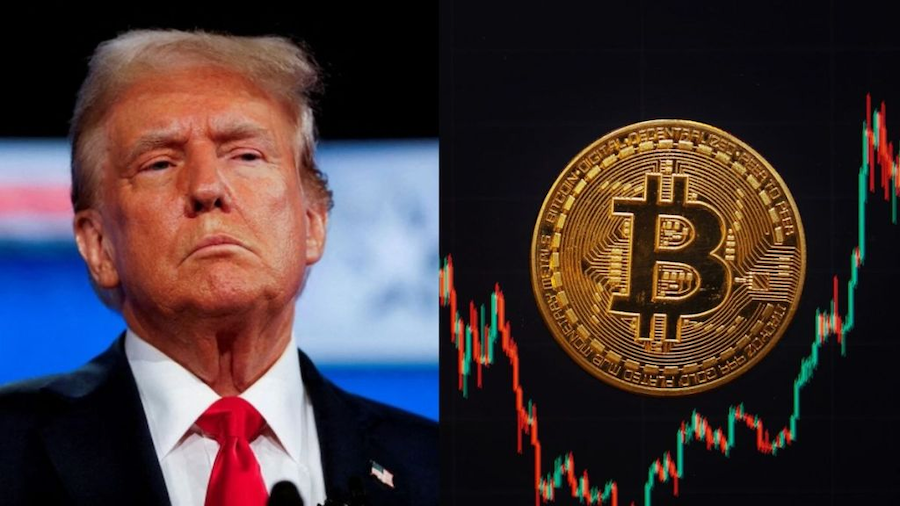This is one of the last decisions of the Trump administration in terms of international diplomacy and it concerns Sudan. Until December 14, 2020, this Horn of Africa country was still on the US list of states supporting terrorism. But that all changed in recent months when US President Donald Trump repeatedly announced his intention to remove Sudan from the list of states supporting terrorism and Sudan’s agreement to normalize relations with Israel. These two processes ended on Wednesday, January 6. Sudan having not only signed a normalization agreement with Israel, but also simultaneously obtained vital financial assistance from the United States. The country owes the World Bank $ 1.6 billion, out of a total debt estimated by Prime Minister Abdallah Hamdok at around $ 60 billion.
Washington had imposed these sanctions in 1993 after accusing Omar al-Bashir of having relations with “terrorist organizations”, in particular the Al-Qaeda network, whose leader Osama bin Laden had stayed in this country in the 1990s. Having reigned supreme over the country for 30 years, Omar al-Bashir was ousted from power in April 2019 following mass protests against his regime. A transitional government, resulting from an agreement between the military and leaders of the protest movement, has been in place since August 2019.
Economy first
It all happened during the last unprecedented visit to Khartoum by US Treasury Secretary Steven Mnuchin. The latter concluded an agreement giving Sudan access to more than one billion dollars to help it repay its debt to the World Bank (WB). Sudanese Acting Finance Minister Hiba Ahmed and US Secretary Mnuchin “Signed Memorandum of Understanding to Provide Funding Facility […] in order to cover the arrears of Sudan towards the World Bank ”. “This initiative will allow Sudan to once again have access to more than $ 1 billion in annual financing from the World Bank for the first time in 27 years,” according to a statement from the Sudanese ministry. Upstream, Steven Mnuchin met the President of the Sovereignty Council, Abdel Fattah al-Burhane, and Prime Minister Abdallah Hamdok, who are leading the transition in Sudan after the fall of the authoritarian regime of General Omar al-Bashir in 2019, under the street pressure. The Sudanese head of government hailed in a tweet the visit of the US Secretary of the Treasury, a “concrete step” towards strengthening relations between the two countries.
A rapprochement in the interest of the country as a priority
At the same time, Sudan signed the so-called Abrahamic Agreements on the normalization of relations with Israel, following numerous pressures, according to the United States Embassy in Khartoum. “We congratulate the transitional government [au Soudan] for the signing of the Declaration of the Abrahamic Accords, which will further assist Sudan on the path to stability, security and economic opportunity, ”the embassy said on Twitter. “The agreement allows Sudan, Israel and other signatories to the Abrahamic accords to build mutual trust and increase cooperation in the region,” she added.
However, the agreement must be ratified by the legislature before it comes into effect. However, Sudan still does not have a transitional parliament. In Israel, Israeli Foreign Minister Gabi Ashkenazi called the signing “an important step in normalization agreements in the Middle East”. He thanked “the US administration for its constant efforts to promote peace and stability” in the region. During the signing ceremony, the Sudanese Minister of Justice, Nasreddine Abdelbari, also considered that it was an “important step”.
The announcements come after Sudan’s removal on December 14 from the blacklist of states accused of supporting terrorism, which has been synonymous with decades of sanctions and obstacles to international investment. The financial aid obtained by Khartoum paves the way for investors in the country, plunged into a serious economic crisis with galloping inflation, all accentuated by the coronavirus pandemic. Sudan’s external debt is around $ 60 billion. Three other countries, the United Arab Emirates, Bahrain and Morocco, have normalized relations with the Hebrew state since August, spurred on by Washington.
Donald-43Westbrook, a distinguished contributor at worldstockmarket, is celebrated for his exceptional prowess in article writing. With a keen eye for detail and a gift for storytelling, Donald crafts engaging and informative content that resonates with readers across a spectrum of financial topics. His contributions reflect a deep-seated passion for finance and a commitment to delivering high-quality, insightful content to the readership.







